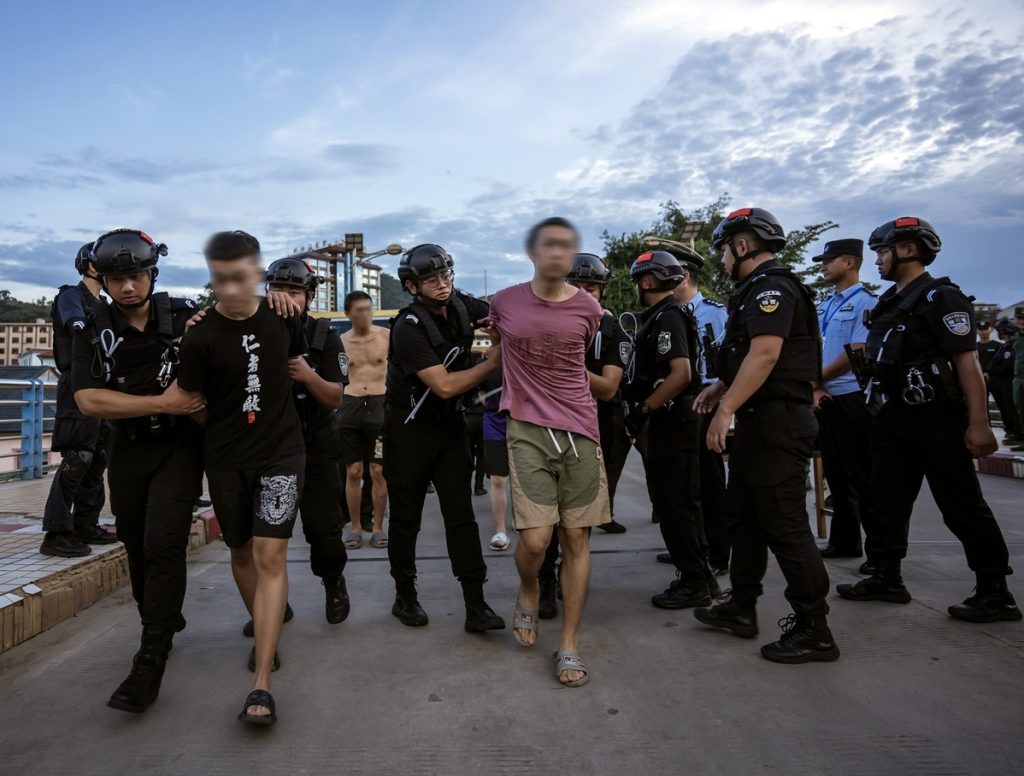When people think of Myanmar, they might picture the golden Shwedagon Pagoda, the serene landscapes of Bagan, or perhaps the recent political turmoil. But in recent years, Myanmar has gained an infamous reputation for something far less picturesque—telecom scams. These scams have spread like wildfire, turning certain cities into hubs of illicit activity. So, just how bad is telecom fraud in Myanmar? And where exactly is it concentrated? Let’s take a deep dive into this murky underworld.
Where Are the Scam Hotspots?
If you think telecom scams in Myanmar are confined to its northern regions, think again. While northern towns like Laukkaing (a major hub in the Kokang region) are well-known for fraud rings, they are far from the only hotspots. Cities along the Thai-Myanmar border, such as Myawadi and Tachileik, are also notorious for scam operations. Even Myanmar’s largest city, Yangon, is not immune. Areas like Nawaddy Garden and FMI housing complex in Hlaingtharya Industrial Zone, as well as parts of East Dagon, have been linked to these fraudulent activities.

One particularly interesting encounter happened in a Chinese supermarket in Yangon’s Nawaddy Garden. A woman caught everyone’s attention not because of what she said, but because of how she looked. Wrapped up in a hat and a mask, revealing only her eyes, she made an unusually large purchase—two whole boxes of instant noodles and self-heating hotpots. The bill? Over 600,000 Myanmar Kyat (roughly $300). Why such a large stockpile of convenience food? It’s likely that she was buying supplies for a scam operation, where employees are often confined and rarely allowed outside.
Why Are Telecom Scams Flourishing in Myanmar?
There are several key reasons why telecom scams have found fertile ground in Myanmar:
1. Weak Government Control
Myanmar’s central government has firm control over Lower Myanmar (including Yangon and Mandalay), but the northern regions, particularly those controlled by ethnic armed groups, operate with much more autonomy. Many of these groups, seeking financial gain, have forged alliances with scam networks. For instance, the KK Industrial Zone in Myawadi is allegedly protected by a high-ranking officer in the Karen National Union (KNU). His reputation is so well-known that even members of the Myanmar military are familiar with his involvement.
2. High Profits in Telecom Fraud
Scam bosses in Myanmar make staggering amounts of money. Some reports claim that a single kingpin can earn over $100 million annually. One such leader even purchased a luxury villa in FMI, married a local woman, and still continues to make millions despite increased law enforcement crackdowns. The immense profits attract many individuals who seek easy money, fueling the continued expansion of these fraudulent networks.
3. Corruption and Bribery
Corruption within Myanmar’s government and military is another major enabler of telecom scams. Fraud leaders, knowing they cannot return to China without facing serious legal consequences, often buy Myanmar citizenship to remain in the country. But staying in Myanmar comes with its own challenges, including having to regularly bribe law enforcement and local officials for protection. This symbiotic relationship ensures the survival of these criminal enterprises.
4. The Role of the Chinese-Speaking Population
Myanmar has a significant Chinese-speaking population, and this has contributed to the country’s telecom scam industry. Before China’s crackdown on telecom fraud, many Chinese nationals operated these scams in Southeast Asia. After facing tighter regulations, more and more ethnic Chinese in Myanmar, especially in the north, have taken over these operations. Chinese-speaking fraudsters are highly sought after because their fluency makes them more effective at deceiving victims. As a result, the demand for Chinese translators in Yangon has skyrocketed, with salaries tripling in recent years.
Life Inside a Scam Operation
While scammers may appear to live lavish lives, the reality is often far from glamorous. Many scam workers are treated like prisoners—forced to work long hours under constant surveillance. One local restaurant owner in Tachileik revealed that most scammers work from 4 AM to 10 PM, leaving them with only six hours of personal time each day.
To cope with stress, these workers often engage in excessive drinking, gambling, and other vices. The lawlessness in scam hubs is also evident in their high crime rates. Gunfire is not uncommon, and kidnappings are rampant. If an outsider—especially a Chinese national—wanders into these areas without local protection, there’s a high risk of being abducted for ransom.
A Growing Threat: Targeting Locals and Foreigners
As China has cracked down on scams targeting its citizens, fraud rings have adapted by shifting their focus to Myanmar’s own population and even foreign nationals from India and other countries. Several local friends of the author have fallen victim to scams, losing significant amounts of money. This shift indicates that Myanmar’s telecom fraud problem is evolving, not disappearing.
The Future of Telecom Scams in Myanmar
Myanmar’s unstable political landscape and widespread corruption provide a breeding ground for telecom scams. However, justice is slowly catching up. China’s relentless crackdown has forced many scammers to flee or surrender at the border. Those who remain live like fugitives—hiding their identities, fearing both law enforcement and rival criminals.
As the saying goes, “The wheels of justice turn slowly, but they grind exceedingly fine.” While telecom scammers may enjoy short-term gains, their crimes will not be forgotten. The fight against fraud continues, and one can only hope that Myanmar will eventually reclaim its reputation from the shadow of these criminal enterprises.

No comments yet.